Knowledge as social capital
The knowledge of all disciplines and professions available to humanity is growing exponentially. Digitalization and networking in particular have set in motion a developmental spiral of technological knowledge characterized by a tremendous boost of innovation. Of course, technical innovations in society are first of all reflected in the economy.
Knowledge consulting so far: Limited and costly
Consultancy firms usually address the problems of their clients on the assumption that these clients have both the knowledge and the resources to implement it either in-house or, if necessary, can purchase additional resources. The qualitative and quantitative possibilities of using a conventional consulting firm are therefore limited. Not to mention the costs for the client.
For cost reasons, medium-sized companies in particular are often unable to systematically and continuously adapt to change processes and expand their future-relevant knowledge base on a top international level. Neither a momentary call on the services of an external consulting firm nor the permanent installation of a corresponding team of experts in the companies themselves therefore prove to be viable options for medium-sized companies. The same applies in many special fields also for large companies.
The scarcity of knowledge in companies
The individual company participating in the economic process is, of course, exposed to pressure to adapt due to technical innovations and the speed of development of the market. Search measures must be initiated to determine how the challenges of technological knowledge can be met most effectively in economic terms. In order to be able to act more quickly and in line with demand in the technical and commercial fields of action, companies are often lacking their own instruments, especially the adequate knowledge.
Knowledge as a free resource
Nevertheless, there is a lot of unskilled knowledge that can be converted into economic benefits in a wide range of scientific disciplines and professional professions. Internationally recognized “senior executives” are particularly worthy of consideration here: specialists from industry, experts from research institutes and universities, executives from associations and authorities.
Senior Executives have enormous expertise and free capacities. By combining this knowledge potential of individual personalities with the requirements of companies, problem-solving concepts for securing the future of companies can be developed within the framework of interdisciplinary cooperation. These concepts can not only be implemented in practice, but are also economical.
